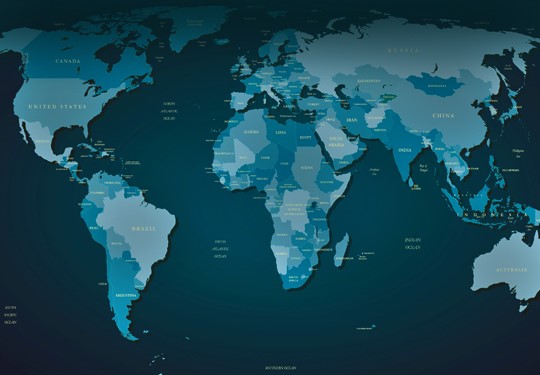A major intergovernmental organization, whose mission is to provide long-term humanitarian and developmental assistance to children and mothers, had embarked on a series of initiatives aimed at improving its internal efficiency and effectiveness. The organization relies on contributions from governments and private donors and its total annual income exceeds $3 billion USD/year. Most of the organization’s work is done in the field, with staff located in over 190 countries and territories.
The scope of the desired operational improvements was broad and included program planning and budgeting, partnerships, procurement, human resources, travel, and cash/funds management. Improvements were expected to come primarily from simplifying business processes and reducing administrative overhead. A secondary objective was that the internal teams should develop the capability to take ownership of the business process redesign activity and the ongoing business process management. This included building the skills to review, diagnose, and develop solutions for the issues they uncover.
Iknow was asked to assist the organization’s internal process improvement teams.
Iknow began by conducting a thorough baseline assessment of current business process performance in the identified areas, using a combination of interviews and results of previous internal studies. This assessment yielded many potential improvements across all areas. For example, we found redundant process steps, lengthy review and approval processes, and opportunities for “lightening” controls on certain types of work, especially those dealing with low-value/high-transaction volume activities.
We then developed a methodology and selected specific tools for performing a more detailed analysis of the business processes. The tools included:
- Process flow mapping, using the IDEF0 framework.
- Risk identification and mitigation, including ways to reduce burdensome control requirements.
- Improvement idea capture and evaluation templates, used to identify and evaluate ideas for addressing process complexity, long cycle times, and high costs.
- Analysis of the potential impacts of making the identified process changes on cycle time, cost, and risk level.
These tools were employed by each internal working group. Iknow supported the working groups with guidance, advice, and coaching.
Iknow designed and led a three-day workshop where the working groups presented and further refined their process improvement recommendations, discussed risk mitigation strategies, and identified cross-functional implementation issues. Iknow introduced relevant improvement ideas from other organizations to help guide the working groups in developing their recommendations and performance improvement targets. More than 40 representatives from the organization’s key functions and region/country operations participated.
In the final phase of the project, Iknow developed a standard template to summarize the working groups’ recommendations, impact, and key implementation steps. Iknow also summarized the high-level themes for reporting to senior management and documented the supporting activities and technology platforms necessary to enable the process improvements. Some examples of the supporting activities included training, performance management, accountability, and decision making. The final recommendations were presented to the organization’s executive leadership and approved.
With Iknow’s guidance, the organization’s working groups generated over 35 significant process improvement recommendations. The improvements were projected to generate more than $10 million USD/year of cost savings. A few examples include:
- Restructuring of the country-level planning and budgeting process to significantly reduce preparation and review time, while enhancing local accountability.
- Rationalization of payroll procedures to eliminate large amounts of non-value-added time on a monthly basis.
- Simplification of procedures for cash transfers to partners, reducing administrative workload while enhancing program monitoring and control.
- Streamlined approaches to procurement of low-value/high-volume goods and services and bid solicitation, significantly reducing processing costs and wait times for supplies and services.
- Multiple revisions to travel procedures, freeing up large amounts of administrative time and improving responsiveness.
- Several process improvements aimed at reducing cycle times for recruitment.
Iknow worked with the organization’s senior management on the implementation planning. The planning activities included project governance, issue/risk management, success tracking, and the frequency of status updates and reporting.


